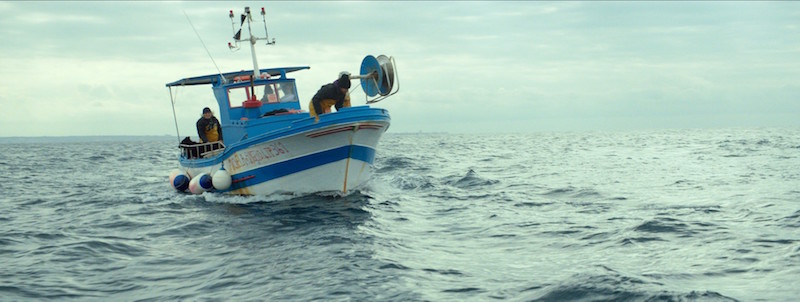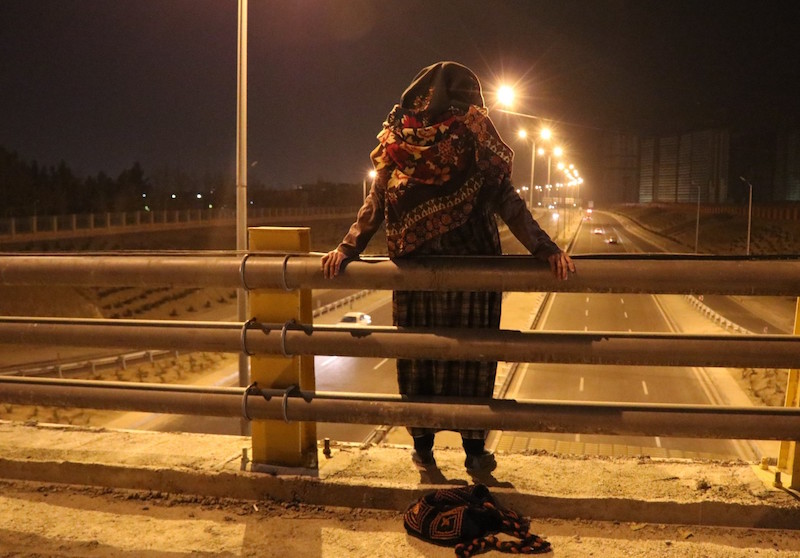Most directors whose features you are watching in cinemas today started out making short films. It’s a fact that short narratives and documentaries are the stuff future filmmaker build their craft on and the Ca 'Foscari Short Film Festival recognizes that through and through. In their press release for the upcoming ninth edition of the event, which will run from March 20th to the 23rd, the following statement made me realize just how much they believe in the learning power of the ‘Short”:
“The “Short” is, indeed, conceived as a professional training moment for Ca ‘Foscari volunteer students, who always provide new lifeblood to the festival’s already proven organizational machine, led by experienced professionals with the coordination of the artistic and managing director Roberta Novielli. ”
Ca ‘Foscari, for those who may wonder, is the name of a prestigious university in Venice, which is housed inside a gothic palace and focuses on a business education. The festival is one more extension of an already healthy and steady series of events organized by the university to provide education outside of the classroom for its students.
This year, the Ca ‘Foscari Short Film Festival will screen shorts that are focusing around the theme of immigrants, and for the first time, the screenings will take place both in the Auditorium Santa Margherita, and inside the brand new M9 - Museo del Novecento in Mestre — thus doubling in a way the official competition.
The poster of the 9th edition of the festival is designed by Giorgio Carpinteri
Works in competition will include the Spanish ‘Clandestine’ by Gerard Vidal-Cortes with a smuggler as the protagonist; ‘Rosso: a true lie about a fisherman’ by the Italian Antonio Messana, which follows the story of Rosso, a fisherman who runs into the body of a migrant off the coast of Sicily; also by a fellow Italian Edoardo Bramucci is ‘Nooh’, which shows us the view of an African child who has come to Italy; the Iranian ‘Raheel', created by Ayat Asadi Rahbar, leads us on the border between Afghanistan and Iran, where a woman embarks on a desperate journey between the two countries in an effort to reunite with her husband; ‘Saszka' by Katarzyna Lesisz is the story of a Ukrainian woman who, in order to obtain a Polish passport, accepts a marriage of convenience but, when her husband dies, she finally hopes to follow her true heart; and the dark fairy-tale ‘People Talk’ by Grzegorz Paprzyck, where two children of Roma origin enter a forest in search of a man and his treasure. I’m leaving off quite a few wonderful works, which you can find out about by checking out their website.
A still from ‘Raheel' created by Ayat Asadi Rahbar
The jury this year for the festival’s main Competion is comprised of programmer Teresa Cavina from Italy, Iranian born filmmaker Ayat Najafi who now calls Berlin home and the the Estonian producer, director and professor Ülo Pikkov. Each were asked to bring a favorite short or two which will be featured in the festival’s Special Jury Program so Cavina picked the Palestinian Tarzan and Arab Nasser’s ‘Condom Lead’, Najafi will present her latest documentary fiction short ‘Nothing Has Ever Happened Here’ and Pikkoy will bring two of his stop-motion animation shorts ‘Tik-Tak’ and ‘Letting Go’.
The International Competition includes a First Prize for the best short film, the Honorable Mention 'Volumina' for the best art film, the 'Pateh Sabally' Prize awarded by the Municipality of Venice and dedicated to the theme of multi-ethnicity, and the 'Levi' Award for the best soundtrack offered by the Ugo and Olga Levi Foundation and assigned by a special jury composed of Roberto Calabretto, Massimo Contiero, Daniele Furlati and Luisa Zanoncelli.
A favorite fact is that the awards are original glass sculptures, especially made by the Murano glassmaker Alessandro Mandruzzato. If you know Murano glass, well, it’s the stuff dreams are made of.
I’ll leave you with some personal words of wisdom: Once you’ll have attended the Ca 'Foscari Short Film Festival, you’ll never think of it as the “other” Venice film festival. Ever again.
For all info and the full program check out the festival’s website.


